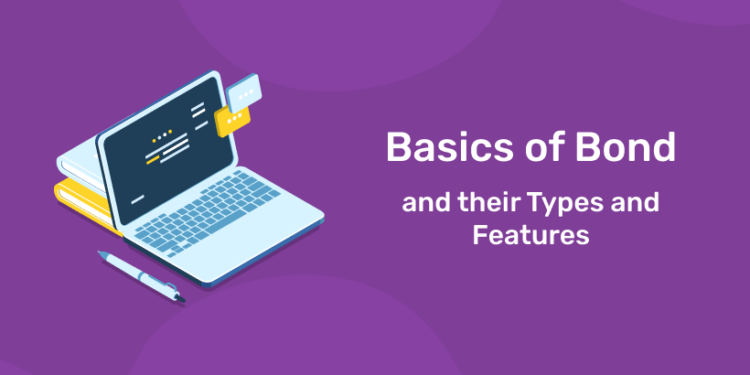Table of Contents
Bonds are a form of debt that is issued by an organization to raise its capital. It is issued for a specific period to raise money by borrowing. Bonds are a type of financial contract, where the firm assures to pay the amount and interest to the person who purchased within a specific time. The organization’s issue bonds include companies, government, municipalities, etc. The fund availed through issuing bonds will be used to meet financial requirements and infrastructural development.
The bond will have a face value and a periodical interest at a fixed or adjustable rate. An investor buying a bond will give the face value of the bond to the company. After the end of the fixed tenure, the company must repay the face value and periodical interest to the investor.
The investor who buys bonds will have legal and financial claims to the company’s debt fund. Therefore the company shall be liable to pay the face value of the bonds to the investor after the tenure. This enables the investor to get debt recovery payments even if the company faces bankruptcy. Investing in bonds is considered superior to investing in stocks in all aspects including the issuer company declaring bankruptcy.
The price of bonds is generally called Face value or Par. It is the standard rate fixed by the issuer. But when the bonds are issued or when it comes to the open market it may be priced lower than face value called discount or it may be priced higher than face value called Premium.
Issuers of Bonds
- Corporate Bonds – Issued by Companies.
- Municipal Bonds – These are bonds which issued by States or Municipalities.
- Government Bonds – Also called sovereign bonds. Issued by government treasuries.
- Agency Bonds – Issued by the government-affiliated agencies.
Types of Bonds
1: What does the acronym "ATM" stand for in banking?
- Fixed-rate bond – As the name suggests the interest rate of these bonds is fixed all the time. The fluctuations in the market will not affect these types of bonds.
- Floating rate bond – The interest rate of these bonds will be fluctuated according to the current market situations.
- Zero Interest rate bond – There is no regular interest paid to the investors. The face value of bonds will be paid after the tenure ends.
- Inflation-Linked bond – As the name suggests these bonds are linked with inflation. The interest rate of these bonds will be lower than fixed-rate bonds.
- Perpetual Bond – This type of bond doesn’t have a fixed end tenure. The investors will get interest as long as they hold these bonds.
- Subordinated bonds – Subordinated bonds are bonds that have less priority compared to other bonds of the company at the time of liquidation. Subordinated bonds are the bonds that will be paid last.
- Bearer Bonds – In all other bonds the name of the bearer will be given. In case of bearer bonds it will not carry th bearer name in it.Anyone who possess the bond certificate can claim the amount.
- War Bonds – Issued by government to raise fund at the time of war.
- Serial Bonds – These are bonds which mature over a period of time in installments.
- Climate bonds – As the same case of war bonds this is also issued by government to tackle the adverse effect of climate changes in the country.
Enroll in Kerala's Top-rated Bank Coaching Program!
Are you ready to take your banking career aspirations to new heights? Join Entri App's Bank Exam Coaching program to kickstart your preparations!
Join Now!Features of Bonds
The features of bonds that the investors should consider before buying
- Face Value – Face value is the price of a bond.When a bond comes to open market it may be sold at Face value or premium or discount. Sometimes the government bonds holds high Fcae value than corporate bonds.
- Interest Rate – Bonds will get an interest rate for the period of holding it.This will be a periodical return which is fixed or adjustable.
- Tenure of Bonds – It means the time for a bond to mature.Only after the maturity period the investors get their money back.
- Credit Quality – The company’s are rated by credit rating agencies.The one which repay all debts in stipulated time gets good score.Investors can fund on those company’s bonds for better returns.
- Tradable bonds – Bonds are issued in primary market.The investors buy it from primary markets.But it can be sold in scondary markets.The ownership can be transferred to several other investors.
Click here for Bank Exam notes
Bonds are relatively low risk investments.Bonds generally have a steady interest cycle.So that there is no specific time to invest in bonds.Investors has a lot of choice in bonds which include the tenure,Interest rate,Credit quality and assess these options and select the best suit for their financial goals.












